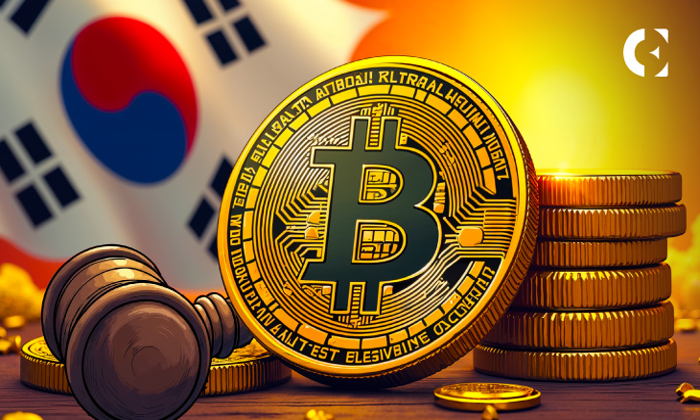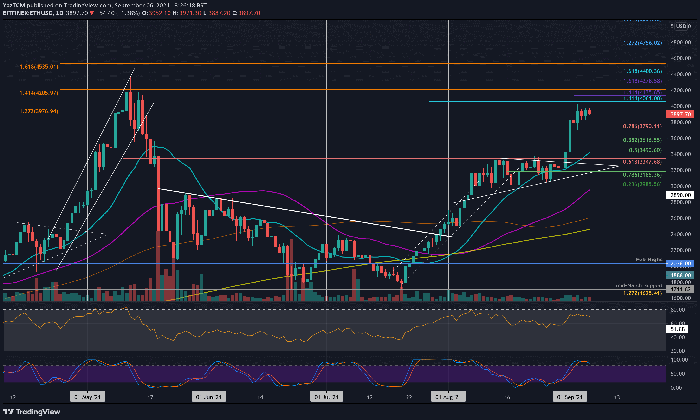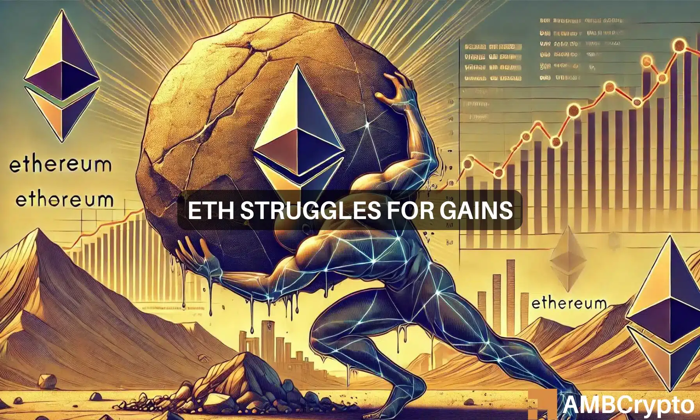Trump Ripple XRP has stirred significant discussions in crypto circles lately, especially following a viral Trump crypto post that unexpectedly embroiled lobbyist Brian Ballard in controversy. The post, shared on Truth Social, touted a “Crypto Strategic Reserve” and linked directly to XRP, raising eyebrows due to its association with Ballard, who was purportedly connected to Ripple. This incident not only led to Ballard’s swift sidelining from White House engagement but also ignited speculation about the political ramifications of discussing digital assets in a highly scrutinized environment. Reports suggest that the fallout from this incident has affected Ballard’s reputation and business relationships, as he navigates the complexities of lobbyist credibility amidst Trump’s social media fallout. As Ripple continues to pursue greater recognition for XRP in the digital asset reserve discussions, the implications of this political drama could resonate throughout the cryptocurrency landscape.
In recent weeks, the cryptocurrency community has been buzzing about the implications of Trump’s recent involvement with XRP, particularly related to a contentious social media initiative. Known as a major player in the digital asset space, Ripple and its native token XRP have become focal points in discussions about establishing a reserve for cryptocurrencies. Meanwhile, the tumult surrounding the involvement of lobbyist Brian Ballard, who has established ties to Ripple, draws attention to the intersections of politics and digital currency advocacy. As the narrative unfolds, the fallout from Trump’s post has prompted many to consider the delicate balance between political connections and the burgeoning world of crypto. The situation highlights the challenges lobbyists face in maintaining their credibility while promoting emerging digital assets in a politically charged environment.
The Fallout of Trump’s Ripple XRP Promotion
The recent fallout from President Trump’s viral Truth Social post about a “Crypto Strategic Reserve” has significant implications, notably concerning his connections with lobbyists like Brian Ballard. The abrupt backlash showcasing Ballard’s ties to Ripple, whose XRP token was explicitly mentioned, has showcased how delicate the political landscape is when cryptocurrency enters the conversation. The promotion of XRP was intended to garner attention and show support for the burgeoning crypto industry; however, it backfired severely, leading to the lobbyist’s expulsion from the White House’s inner circles.
In the wake of the controversial post, Trump’s anger over Ballard’s undisclosed connections with Ripple highlights a growing tendency to scrutinize the motives behind public endorsements. The White House’s quick distancing from Ballard underscores the precarious nature of political alliances, particularly in industries like cryptocurrency where lobbying efforts can heavily influence legislative outcomes. Trump’s decision to sideline a once-prominent lobbyist questions the effectiveness of political networking in a rapidly evolving financial sector.
XRP’s Role in the Proposed Digital Asset Reserve
XRP has often been discussed in the context of a proposed “digital asset reserve,” a concept highlighted by Ripple’s CEO, Brad Garlinghouse. The link between Ripple and a strategic reserve underscores the growing recognition of cryptocurrencies and digital assets in governmental financial plans. As the cryptocurrency landscape changes, the necessity for clearer regulatory frameworks for assets like XRP becomes more pressing. Trump’s commentary on the strategic reserve illustrates an effort to legitimize cryptocurrency’s role in mainstream financial discourse.
The potential inclusion of XRP in a digital asset reserve raises questions about the future of cryptocurrency regulation in the United States. With lobbyists like Ballard previously advocating for such measures, the political dynamics surrounding digital currencies are increasingly critical to understand. This aspect becomes even more relevant as different factions within the political landscape begin to take stances on crypto’s potential impact on the economy. The future of XRP, in particular, hinges not only on market trends but also on its acceptance within political and regulatory frameworks.
Brian Ballard’s Sidelining: Implications for the Lobbying Industry
The sidelining of Brian Ballard from White House activities following the Trump Ripple incident has significant implications for the lobbying industry as a whole. Ballard, known for his connections and past successes with political fundraising, finds himself grappling with the fallout of questionable ethics in lobbying practices. As Trump’s administration continues to evolve, Ballard’s experience illustrates the thin line lobbyists walk when navigating their relationships with both clients and powerful political figures.
Moreover, Ballard’s experience raises questions about transparency and ethical considerations in lobbying. With clients seeking alternative pathways to connect with Trump following Ballard’s sidelining, there could be a shift in how lobbyists approach their relationships within the government. As politicians become more aware of the implications of their endorsements and associations, the lobbying landscape is likely to see a push for greater transparency and accountability, especially in industries experiencing rapid innovation, like cryptocurrency.
The Impact of Trump’s Social Media Strategies on Crypto Advocacy
Donald Trump’s use of platforms like Truth Social to advocate for cryptocurrency, particularly in relation to his promotion of the XRP reserve, reinforces the significant role social media plays in shaping public perception. The viral nature of such posts can yield immediate impacts, both positive and negative, on industries and markets. This dynamic illustrates the power politicians wield, particularly in regard to emerging technologies like cryptocurrency, where community sentiment often hinges upon influential endorsements.
However, the fallout from Trump’s crypto post also indicates the risks associated with casual, spontaneous endorsements via social media. The differing interpretations of public finance and cryptocurrency advocacy can result in unintended consequences, as evidenced by the negative ramifications faced by lobbyists like Ballard. As Trump’s posts resonate through social media channels, the complexities of political, financial, and social interactions in the cryptocurrency arena come to the forefront, emphasizing the need for strategic communication.
Lobbying in the Age of Cryptocurrency: A New Frontier
As cryptocurrencies like XRP gain prominence, lobbying has entered a new frontier where the stakes are high, and the influencers are evolving. The case of Brian Ballard and his ties to Ripple illustrates the intricate balance between lobbying efforts and the volatile nature of digital currencies. Politicians are now recognizing the importance of understanding cryptocurrency not just from a regulatory standpoint but also from an economic perspective.
This evolving landscape suggests that lobbyists must adapt their strategies to effectively advocate within a context that is increasingly scrutinized by both legislators and the public. The fallout from Trump’s statements reflects a growing recognition of the weight that lobbying can carry, especially when it intersects with trending financial technologies. As this intersection expands, so too must the tactics used by lobbying firms to remain relevant and effective.
The Controversial Link Between Lobbyists and Cryptocurrency Companies
The connection between lobbyists and cryptocurrency firms often raises ethical questions regarding influence and transparency. The relationship between Brian Ballard and Ripple exemplifies how personal ties can complicate the public perception of lobbying motives. As seen in Trump’s reaction, the blending of investment interests with political support can lead to backlash when conflicts of interest come to light. Stakeholders in both the political and financial realms must navigate these connections carefully, ensuring that advocacy does not overshadow ethical implications.
Furthermore, as cryptocurrencies continue to grow in acceptance, the scrutiny on lobbying relationships is likely to intensify. With lobbyists facing challenges tied to public trust and the integrity of their work, strategies must evolve to prioritize transparency and ethical conduct. The incident involving Trump’s Ripple promotion, which resulted in Ballard’s distancing from power, highlights the potential dangers of failing to address these concerns. Going forward, establishing clearer boundaries and ethical standards will be crucial for maintaining balance in the complex relationship between lobbyists and the cryptocurrency sector.
Ripple’s Future and the Political Influences Surrounding It
The future of Ripple and its XRP token will significantly depend on the political influences surrounding cryptocurrency regulation. Trump’s recent posting has thrust Ripple into the spotlight, convergence with lobbying instances, particularly the repercussions faced by Brian Ballard. As political dynamics evolve, the need for clear and supportive regulations for XRP becomes paramount for investors and stakeholders who believe in the digital asset’s potential.
Given the rapid changes in market sentiment and regulatory frameworks, Ripple’s strategy must adapt to the shifting political landscape. The consequences of Ballard’s sidelining illustrate that companies, especially those like Ripple heavily reliant on political advocacy, must maintain diligent transparency and ethical practices. Only time will tell how these political influences will shape Ripple’s path in the coming years, particularly as they aim to secure XRP’s place in the digital asset reserve discussions.
Understanding Trump’s Crypto Strategy Amidst Regulatory Challenges
Amidst regulatory challenges for cryptocurrency, Trump’s crypto strategy signals a potential shift in rhetoric that could impact broader acceptance of digital currencies. His vocal support for assets like XRP through social media provides a backdrop for discussions about how far political endorsement can go in influencing public and institutional interest in cryptocurrencies. Trump’s outreach and mention of Ripple in his posts may energize the market, but it also poses risks for both political figures and lobbyists.
Furthermore, the underlying complexities of navigating regulatory frameworks while maintaining positive relations with influential lobbyists like Ballard show the multifaceted nature of engaging with cryptocurrency. As Trump faces fallout from the implications of his support for XRP, a careful balance must be struck between advocating innovation in finance and adhering to regulatory standards. This balance will be crucial for not just Trump’s administration but for potential future political endeavors as cryptocurrency continues to mature in the financial environment.
The Ripple Effect of Trump’s Political Decisions on XRP Valuation
Trump’s political decisions can have a ripple effect on the valuation of cryptocurrencies like XRP. His previous endorsements and criticisms have occasionally led to noticeable shifts in market dynamics. With Ripple’s XRP token positioned at the center of recent discussions, the implications of Trump’s rhetoric become paramount as investors look for signals that could impact market confidence.
As a result, understanding the interconnectedness of political actions and cryptocurrency valuations is essential in today’s financial ecosystem. The recent fallout resulting from Ballard’s ties to Ripple emphasizes how intertwined the political landscape is with financial markets, particularly regarding emerging technologies like cryptocurrency. To predict XRP’s future performance, stakeholders must closely monitor these political nuances alongside market trends, revealing the broader economic implications of political maneuvers.
Frequently Asked Questions
What is the impact of Trump’s Ripple XRP post on Brian Ballard’s lobbyist activities?
Trump’s Ripple XRP post caused significant fallout for lobbyist Brian Ballard, as it was revealed that his firm had ties to Ripple. After the post went viral, Trump was reportedly furious upon learning about Ballard’s involvement, leading to Ballard being sidelined from White House activities. This incident highlights the delicate relationship between lobbying and the crypto industry.
How did the Trump social media fallout affect the perception of Ripple ties to lobbyists?
The Trump social media fallout emphasized the potential risks associated with lobbyists having ties to cryptocurrencies like Ripple. The backlash from Trump’s XRP post led to greater scrutiny of lobbying practices in the crypto sector, highlighting how quickly relationships can shift when political figures become aware of such connections.
What role did Brian Ballard’s lobbying firm play in the Trump XRP situation?
Brian Ballard’s lobbying firm was reportedly advising on the Trump crypto post that mentioned XRP, which led to significant consequences when the President discovered the ties. Ballard’s firm had been promoting Ripple’s interests, which contributed to Trump’s negative reaction and subsequent distancing from the lobbyist.
Can Ripple’s XRP be included in a proposed crypto strategic reserve as suggested by Trump?
There has been ongoing discussion regarding the inclusion of Ripple’s XRP in a proposed crypto strategic reserve, especially after Trump’s post that mentioned the digital asset. However, the implications of political endorsements on such a reserve remain complex and could be affected by the political landscape and lobbying efforts.
What does the recent news about Trump Ripple XRP mean for the future of crypto lobbying?
The recent news surrounding the Trump Ripple XRP incident indicates a potentially more challenging environment for crypto lobbying. As political figures navigate the influence of lobbyists with ties to digital assets, this situation may lead to tighter regulations and greater scrutiny of lobbying practices in the crypto space.
| Key Points |
|---|
| Trump promotes a ‘Crypto Strategic Reserve’ on Truth Social, leading to controversy surrounding lobbyist Brian Ballard. |
| Ballard’s ties to Ripple (XRP) were undisclosed at the time of the post, causing Trump to react negatively when informed. |
| Trump reportedly told White House associates that Ballard was no longer welcome, effectively sidelining him from the administration. |
| Since Trump’s return, Ballard Partners has significantly increased its client base, raising questions about Ballard’s influence. |
| Ballard denied accusations of misusing relationships with the Trump administration for personal gain, claiming no intent to mislead. |
| The fallout has prompted some of Ballard’s clients to seek other ways to connect with the President and his advisors. |
Summary
Trump Ripple XRP has become a focal point in the political landscape following the controversy involving lobbyist Brian Ballard. After promoting a ‘Crypto Strategic Reserve’ through a wide-reaching social media post, tensions arose when Trump’s ties to Ripple became evident, leading to Ballard’s marginalization from the White House. The incident highlights the complex interplay between political lobbying and cryptocurrency advocacy, with significant implications for the future of crypto-related policies in Trump’s administration. As Ripple (XRP) continues to navigate its place in the digital currency space, the repercussions of this fallout will likely influence both Trump and the broader crypto community moving forward.
In the midst of ongoing discussions about the future of digital currencies, Trump Ripple XRP has emerged as a significant focal point. A recent Trump crypto post that referenced this digital asset stirred controversy, especially after it became apparent that lobbyist Brian Ballard had undisclosed connections with Ripple. This surprising revelation led to Ballard’s rapid sidelining from White House engagements, sparking intrigue about the interplay between politics and cryptocurrency. As Ripple seeks to advocate for the integration of XRP into a proposed digital asset reserve, the ramifications of this post have rippled throughout the political landscape. The fallout from Trump’s social media gambit highlights the intricate ties and lobbying efforts that influence the crypto realm in Washington D.C.
The recent developments surrounding Trump’s association with Ripple’s XRP token showcase a pivotal moment in the crypto sphere. This situation highlights the complexities of lobbying within political circles, particularly through figures like Brian Ballard, known for his strategic connections to the White House. With the excitement around a potential ‘digital asset reserve’ being proposed, the echoes of the President’s earlier social media communication have stirred debates on the implications of such endorsements. Additionally, the upheaval from the Trump crypto post underscores the relationship dynamics between financial innovation and political alliances. As these events unfold, the intersection of cryptocurrency and governmental influence continues to captivate both industry stakeholders and political observers alike.














